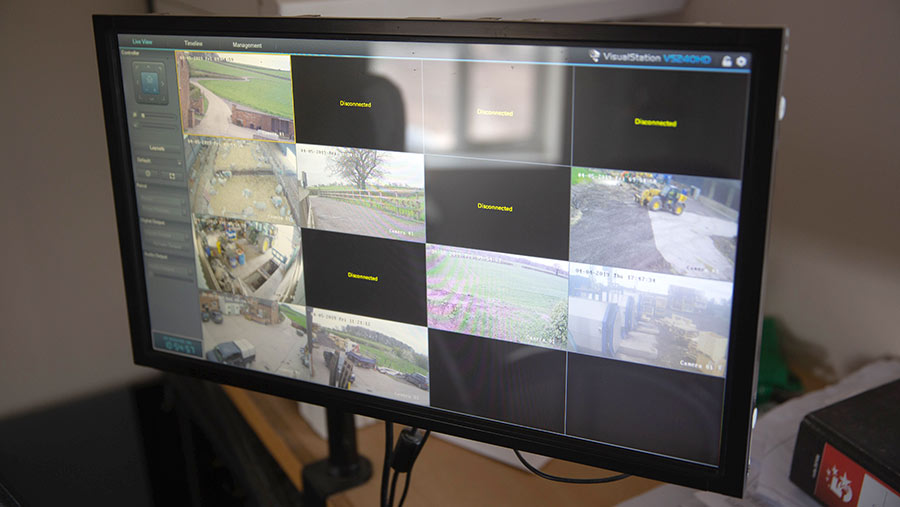Police set up spy cameras to snare rural criminals
 © Tim Scrivener
© Tim Scrivener Lincolnshire Police has launched a high-tech crackdown or rural crime using 20 spy cameras in secret locations across the county. The force is hoping to snare burglars, thieves, arsonists and wildlife criminals that repeatedly target remote and rural locations.
Cameras will be equipped with night vision and movement sensors capable of alerting police headquarters to intruder movements within seconds. As well as operating at night, the robust cameras are capable of working in bright sunshine or direct light and in temperatures ranging from -25C to 60C.
Any attempt to tamper, refocus or remove the cameras will also prompt an alert to the police. Suitable sites for the project, called Rural Spotter, are yet to be finalised, but will be selected by police analysts and reviewed after six and 12 months.
See also: Spiralling costs forcing farmers to change business plans
Those sites could be on buildings, vehicles, in vegetation, gateways or in trees. The cameras are small and mobile and can quickly be relocated if needed. Equipment costs are expected to be about £20,000, with the funds drawn from proceeds of crime money via police auctions of stolen property.
The venture was signed off by Lincolnshire police and crime commissioner Marc Jones and follows other investment in high-tech kit by the force.
Lincolnshire’s officers have already benefited from night vision goggles and new drones. Lincolnshire’s PCC Marc Jones said it was imperative to adopt the latest technology in the fight against crime.
“It will seriously enhance our ability to put eyes on the most isolated locations and alert officers in seconds – ensuring a rapid response to criminal activity,” said Mr Jones.
Crime survey
Meanwhile, a project to assess the effects of organised crime in rural areas is under way in Devon and Cornwall.
Led by the University of Plymouth, the survey was sparked by NFU Mutual figures showing the West Country had seen a 14% rise in rural crime.
Farmers will be asked to complete the online Rural Crime Survey and provide their experiences of crime and the extent of their concerns.
It will ask whether farmers feel safe and if they feel crime is a problem in their community. The survey also wants to know about the nature of crimes and incidents have changed in recent years.
The survey is available on the university’s website.
Crime prevention
The two initiatives came as the Country Land and Business Association (CLA) claimed the cost-of-living crisis could increase the likelihood of crime in the countryside.
The CLA said rural areas traditionally became targets in times of economic uncertainty. With shortages in supply, machinery and equipment has increased in value, making it more attractive to thieves.
Likewise, soaring diesel, fuel oil and fertiliser prices have put these rural commodities firmly on the criminals’ shopping lists.
In one incident, highlighted by Dyfed-Powys Police this week, more than 1,000 litres of diesel was stolen from a storage tank in a farmyard in the Talgarth area of Brecon, while a solar-powered electric fence pack went missing from another farm in the same area.
The CLA advised farmers to:
- Fit recognised tracking devices
- Store machinery in locked outbuildings or containers when not in use
- Secure quad bikes and other ATVs with fixed ground anchors, chains and padlocks
- Use dedicated key safes
- Change vehicle pin codes from the default setting
- Fit wheel clamps to trailers and hitch locks
- Remove GPS units from vehicles when not in use
- Record all serial numbers, makes and models
- Photograph all equipment and machinery, from combines to chainsaws
- Check livestock frequently and vary timings of visits
- Use gate sensors
- Join local watch schemes.
